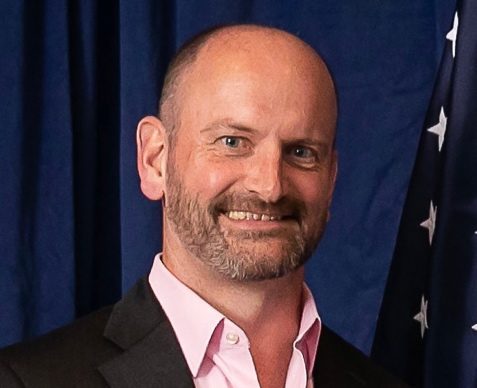
Douglas Carswell
The state stepping in to do what city officials cannot or will not do might even make the municipal accountability problem worse.
Mississippi’s legislature has focused a lot on Jackson this session.
A bill that could have helped create more Charter Schools died in committee. Another seeking to give voters the power to recall elected officials never made it. Lawmakers apparently did not have time to consider a Parents’ Bill of Rights or reforms that might improve health care in our state either.
But what they did manage to do was find plenty of time to consider how to fix the state of our state capital.
With Jackson’s water supply reliably unreliable, Senator David Parker introduced a bill that establishes a new regional water authority, run by a board appointed by city and state leaders. Then there was legislation introduced to give the Capitol police in Jackson jurisdiction across the whole city, rather than over a few blocks downtown. Legal measures were also approved to create a court system for the newly extended policing area.
“Good,” I hear you say. “Jackson’s a mess and time spent trying to fix these things is time well spent.”
Our capital certainly has one of the highest homicide rates per person in America. Last year, 133 people were murdered in the city. Anything that provides us with more effective law enforcement and a better system of public prosecution deserves support.
Then there are the persistent problems with Jackson’s water supply. As someone that works downtown, I can confirm that the sludge that flows from the faucets is the same sepia color as before. Anything that means a city of 150,000 people might at least have reliable running water has to be a good thing, right?
For years, of course, the mainstream media attacked Mississippi’s leaders for not concerning themselves with what was going on in Jackson. Remember when Jackson’s water troubles hit the national headlines last year? There was no shortage of commentators on hand to inform the rest of America that it was all down to the failure of state officials for not getting involved. Donna Ladd even suggested to NBC News that the lack of running water in the city was “a direct legacy of white-supremacist thinking at the state level.” Really.
Now that state officials are actively seeking to fix some of the state capital’s problems, of course, the mainstream media throws out precisely the same kind of accusations. CNN recently informed us that creating a functioning court system for the city “smacks of a modern-day Jim Crow regime.”
Attacked when they do. Attacked when they don’t. I have a great deal of sympathy for state officials who get vilified for leadership failings that are 100 percent made in Jackson.
That said, conservatives should think carefully before stepping in with state power to try to fix local-level incompetence. Why?
Each time that the state government steps in, what they are doing is fixing specific problems caused by municipal failure. They aren’t addressing the underlying causes of that failure, which is a lack of accountability. Stepping in to do what city officials cannot or will not do might even make the accountability problem worse.
Thirty years ago back in my native Britain, Margaret Thatcher faced a similar problem. Although elected Prime Minister with a large majority, in certain parts of the country local government was in the hands of those that were known as the ‘looney Left.’ The ‘looney Left’ were often so incompetent they could not run a bath.
Eventually, Mrs. Thatcher felt she had to intervene, taking steps to prevent the ‘looney Left’ from destroying the cities that they ran. Her interventions might have improved things in the short term, but they caused a long-term strategic problem for conservatives.
First, it put back to the day when people in those badly run areas had to face the consequences of how they voted. If anything, people knew that they could carry on voting the way they did safely in the knowledge that the central government would intervene before anything got out of hand.
Second, it played into the hands of local politicians whose whole schtick was to foster grievances, as opposed to run things competently. Having an outside authority step in to take responsibility not only lets the grievance-mongers off the hook. It gives them a whole new set of real or imagined grievances to complain about, assisted by a media only too willing to amplify those grievances. (See the media coverage after Governor Reeves restored Jackson’s water supply for details).
Third, conservatives who see state intervention as the solution to Jackson’s multiple municipal failings ought to ask themselves how far they might be willing to go. If new state structures are the answer to the city’s water problems, why not create a similar system to oversee the airport? If we now have a new court system, why not a new structure to run the city’s failing schools?
No conservative would want the federal government to step in and run our state. We should be cautious about having the state government intrude too far into municipal affairs either.









